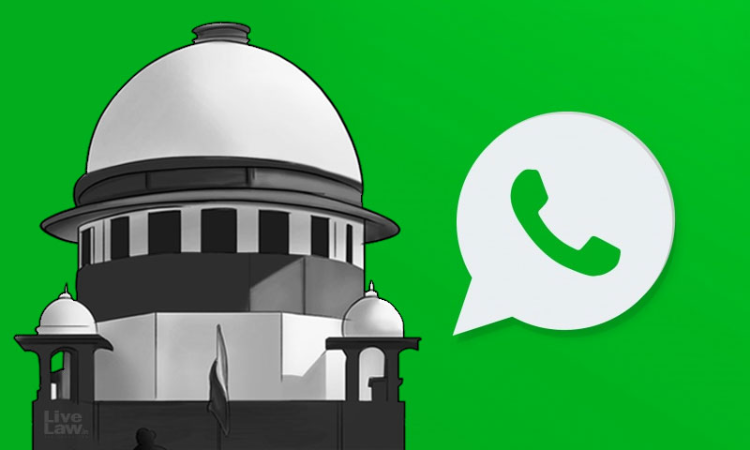
In India, there are currently more than 500 million users of WhatsApp, and WhatsApp is threatening to leave India as the arguments in court intensify.
THE ISSUE
To get a better understanding of this issue, let us trace back to the genesis of this case. WhatsApp and its parent company, Meta, moved to court, wherein they challenged Rule 4(2) of the Information Technology Rules, 2021.
As per this rule, certain ‘significant’ social media intermediaries (those with more than five million registered users) that are involved in services that involve messaging shall allow and reveal the identity of the “first originator” of a message when a competent authority or a when a court dictates them to do so.
The company stated in front of the court that it has garnered such a wide user base because it assures its users complete privacy and that the messages on it are end-to-end encrypted. End-to-end encryption means that the messages among the users cannot be accessed by anyone, even by the app.
The company further contended that if they were to comply with the said rule, then they’d have to store a vast number of messages for a long period of time, and they added that such mandates are nowhere else in the other countries they operate in.
But the government is persistent about creating a mechanism that can track down the originator of the messages. The reason cited is that there is an urgent need for creating accountability.
The advocate for Meta and Whatsapp also said that if they are told to break off the end-to-end encryption, then they’ll be forced to leave.
THE HEARING
The court concluded the day’s hearing, and after listening to the contentions made by both parties, the court recognized a necessity for balance between the two contentions. The court has adjourned this hearing until August 14th.
THE IMPACT IT WILL CREATE IN THE FUTURE
The ongoing legal battle between WhatsApp and the Indian government over privacy and traceability concerns has far-reaching implications for both parties involved, and the millions of users caught in the middle.
At the heart of the issue lies Rule 4(2) of the Information Technology Rules, 2021, which mandates that significant social media intermediaries reveal the identity of the “first originator” of messages when required by competent authorities. WhatsApp, backed by its parent company Meta, vehemently opposes this rule, citing its commitment to end-to-end encryption and user privacy.
With over 500 million users in India, WhatsApp’s threat to leave the country underscores the gravity of the situation. If forced to comply with the rule, WhatsApp argues it would compromise its encryption standards and user trust, potentially setting a dangerous precedent for privacy rights globally.
On the other hand, the government argues that traceability is essential for ensuring accountability and combating misinformation and unlawful activities. The court, recognizing the complexity of the issue, has deferred a final decision, acknowledging the need to strike a balance between privacy concerns and law enforcement imperatives.
However, regardless of the court’s eventual ruling, the outcome of this case will reverberate beyond legal confines. It will shape the future of internet regulation, privacy rights, and digital sovereignty in India and potentially influence similar debates worldwide.
As the legal saga continues, stakeholders must navigate a delicate balance between privacy, security, and accountability to chart a path forward that safeguard both individual liberties and public safety in the digital age. The August 14th hearing promises to be a pivotal moment in this ongoing saga, with implications that extend far beyond courtroom walls.





